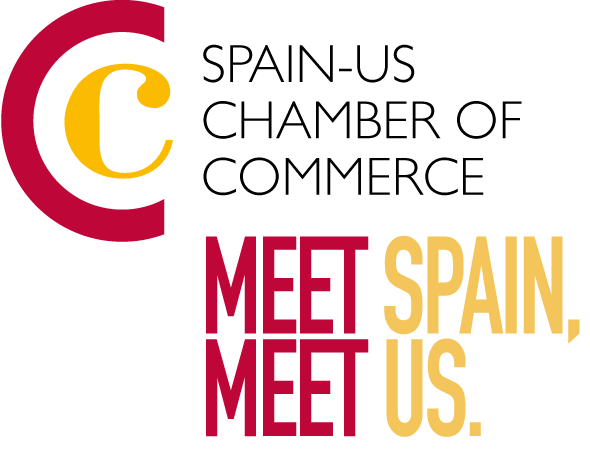
- By: Spain-US Chamber of Commerce, Inc.
- Author: Andy Barreto
- Marketing & Communication
If you are a Spanish company looking to expand into the U.S. or any other global market, effective organizational management is vital for ensuring success and productivity. Structuring your organization to optimize team performance and coordination is essential. Here are some key strategies recommended by HR firms and consultants that can be applied to your business.
Effective organizational management is vital for ensuring the success and productivity of businesses. It involves structuring the organization in a way that optimizes the performance and coordination of teams. This includes carefully assigning tasks and responsibilities, fostering a culture of collaboration, and maintaining a balance between autonomy and oversight.
Proper management helps to align the team’s efforts with the company’s strategic goals, ensuring that individual contributions are effectively coordinated and leveraged for maximum impact. Moreover, it enhances team cohesion and motivation, which are crucial for sustaining high levels of performance and innovation. Considering this, concepts such as cultural and emotional intelligence, diversity as well as the ability to be aware of inherent biases in decision-making, can significantly enhance team management within an organizational environment.
According to a study conducted by Marina Iskhakova and Dana working in culturally diverse teams enhances team-level cultural intelligence (CQ) over time. Culturally diverse teams provide valuable opportunities for team members to learn from each other, developing essential skills for working in international contexts. Some practical examples, illustrating the benefits of cultural intelligence in some companies are the following:
- Starbucks has been working on diversity, unconscious bias, and global collaboration for over twenty years. But one of the things they found in cultural intelligence was a coherent model that could be used across the company without forcing everyone to apply it the same way. Many of Starbucks global offices had resisted their previous diversity, equity, and inclusion (DEI) programs because they were too US-focused. The topics were not relevant to being a barista or store manager in Hong Kong or Dubai. With cultural intelligence, everyone had a consistent language and model with the freedom to apply it to the realities in the local context.
- Fiat Chrysler initially adopted cultural intelligence to help their global IT teams develop a shared set of operating guidelines while acknowledging the regional differences between the teams in Italy, China, and the Americas. But they soon saw that all their frontline employees needed some measure of CQ to work together and support their diverse customer base. At Ohio State University, CQ began as a tool to support study abroad programs.
In addition to fostering cultural intelligence, leaders must also consider the importance of emotional intelligence (EI). This term has been recognized as a crucial factor in effective leadership and organizational success. According to a study by Görgens-Ekermans and Roux, EI significantly impacts transformational leadership (TFL) behaviors and the overall performance of leaders and their teams. EI involves the ability to recognize and manage one’s own emotions, as well as the emotions of others, which is essential for building strong relationships and fostering a positive work environment.
Leaders with high EI are better equipped to respond to and influence their subordinates’ emotions, leading to higher levels of job satisfaction, organizational commitment, and perceived supervisor support. The study highlights that specific EI competencies, such as self-awareness, self-management, social awareness, and relationship management, are foundational to effective leadership behaviors, including idealized influence, inspirational motivation, and individualized consideration.
Some examples of companies that emphasize emotional intelligence (EI) in their workplaces are:
- Google: Google is well-known for creating a work environment that supports emotional intelligence. They provide a range of benefits like free meals, on-site gyms, and even massage rooms. These perks are designed to make employees feel valued and cared for, which boosts their overall well-being and job satisfaction. Google’s focus on EI helps employees stay motivated and productive.
- Boston Consulting Group (BCG): BCG encourages a creative and stress-free work environment. They have unique practices like incorporating poetry into meetings to inspire creative thinking and problem-solving. By fostering a supportive and innovative workplace, BCG helps employees feel more connected and engaged, which enhances their performance and retention.
Another key concept in organizational leadership is diversity in the workplace which encompasses various demographic and socio-economic aspects such as gender, age, race, ethnicity, religion, and more.
Diversity is a foundational element of a team’s collective intelligence. It extends beyond gender, functional, and educational backgrounds to include a diversity of cognitive styles—that is, different ways of thinking about, perceiving, and remembering information, or simply different ways of solving problems or seeing the world.
Marriott is a leading player in the global hospitality and tourism industry. With 30 brands and 8,000 properties across 139 companies, Marriot has over 120,000 employees. Marriott still focuses on diversity despite their scale. For example, women-owned businesses comprise about 10% of its supply chain. Also, over 50% of Marriott’s US leadership is diverse. Marriott has 53% women in its workforce globally. In the US, 54% of its workforce is female. People of color make up 66% of the company’s total workforce, and 21% are executives.
LGBTQ+ inclusion is also a priority for Marriott. The company has received accolades as the “Best Place to Work” for LGBTQ+ equality. Marriott aced the HRC 2016 Corporate Equality Index, the benchmark for diversity. The company’s TakeCare Movement drives commitment to cooperation and global diversity.
According to Croitoru, leaders who effectively manage diversity can foster a more inclusive and respectful workplace, which enhances employee motivation, innovation, and overall performance. A diverse workforce brings a variety of perspectives and ideas, which can lead to more innovative solutions and improved problem-solving abilities. Additionally, diversity management promotes fairness and equality, which can increase job satisfaction and organizational commitment among employees.
Creating a diverse and equitable workplace involves several important steps. First, gather direct feedback from employees to ensure that equity efforts are effective and that everyone feels heard. Leadership should actively support these initiatives, showing a genuine commitment to addressing issues faced by underrepresented groups. Next, review HR policies to eliminate any discriminatory practices and ensure fair hiring and promotion processes. It’s also crucial to examine pay structures to uncover and address any disparities based on gender, race, or other factors. Finally, focus on employees’ skills and capabilities rather than their demographics. Use tools like talent marketplaces to match people with opportunities based on their strengths, fostering a more inclusive and supportive work environment.
This integration fosters an environment where all team members feel valued and emotionally safe to share their ideas, leading to better decision-making and problem-solving. In addition, managing biases is equally important. Biases such as overconfidence, optimism, and anchoring can significantly distort a leader’s judgment, leading to poor decision-making. For instance, overconfidence can cause leaders to underestimate risks and overestimate their capabilities, while optimism bias can result in unrealistic planning and goal setting. Leaders must be aware of these biases to mitigate their impact, ensuring more balanced and realistic decisions. This awareness can be achieved through various strategies, including seeking diverse perspectives and continuously questioning their assumptions.
For example, a leader who recognizes the potential for overconfidence might deliberately seek out and consider opposing viewpoints before making a major decision. This not only improves the quality of the decision but also builds a culture of inclusivity and rigorous analysis within the team.
In public sector jobs like the police or military intelligence, and safety-paramount jobs like aerospace, diversity is essential. When groupthink takes hold, it undermines the organization’s ability to accurately assess threats and spot a wide range of potential issues.
This can lead to misinterpretations of intelligence, inappropriate responses to incidents, improper preparation or procedures, and even the wrongful targeting of individuals or groups based on biased perceptions rather than factual evidence. In such high-stakes environments, where decisions can have life-or-death consequences, the importance of overcoming these biases is a must.
In the dynamic business landscape of the United States, it is imperative for companies to cultivate leaders who can effectively focus on and integrate concepts such as cultural and emotional intelligence, diversity, and bias management. These aspects should not be overlooked, as their effective management can significantly impact on the work environment and organizational efficiency. While it is essential for leaders to prioritize metrics and performance indicators, they must not neglect the fundamental human elements that often go unnoticed but are crucial to organizational success.
Cultural intelligence (CQ) allows leaders to navigate and leverage the diverse backgrounds of their teams, leading to enhanced communication and collaboration. Emotional intelligence (EI) enables leaders to manage their emotions and those of their team members, creating a supportive and productive work environment. Managing diversity ensures that a wide range of perspectives and ideas are considered, driving innovation and better problem-solving. Awareness and mitigation of biases, such as overconfidence and optimism bias, lead to more balanced and informed decision-making.
Leaders who focus solely on quantitative measures may miss out on the vital human factors that drive employee engagement, satisfaction, and performance. By embracing and effectively managing these elements, leaders can create a positive organizational culture that promotes both personal and professional growth. This approach can be the differentiator between success and failure in a highly competitive market.
Therefore, U.S. companies must invest in developing leaders who are not only proficient in traditional business metrics but also skilled in these critical areas. Doing so will ensure a holistic approach to leadership that maximizes both human and organizational potential, ultimately leading to sustained success and a competitive edge.
BIBLIOGRAPHY
Basile, D. M., & Mackenzie, M. L. (2012). Emotional Intelligence Explored within Top US Companies. Proceedings of the Northeast Business & Economics Association, 2-6. Retrieved form https://digitalcommons.molloy.edu/cgi/viewcontent.cgi?referer=&httpsredir=1&article=1009&context=bus_fac
Boston Consulting Group. (2020, February 5). Boston Consulting Group. Retrieved from https://www.bcg.com/publications/2020/tap-your-company-collective-intelligence-with-mindfulness
Boss, V., Dahlander, L., Ihl, C., & Jayaraman, R. (2023). Organizing entrepreneurial teams: A field experiment on autonomy over choosing teams and ideas. Organization Science, 34(6), 2097-2118. https://doi.org/10.1287/orsc.2021.1520
Croitoru, G., Florea, N. V., Ionescu, C. A., Robescu, V. O., Paschia, L., Uzlau, M. C., & Manea, M. D. (2022). Diversity in the workplace for sustainable company development. Sustainability, 14(11), 6728. https://doi.org/10.3390/su14116728
Görgens-Ekermans, G., & Roux, C. (2021). Revisiting the emotional intelligence and transformational leadership debate:(How) does emotional intelligence matter to effective leadership? SA Journal of Human Resource Management, 19, 1279. https://doi.org/10.4102/sajhrm.v19i0.1279
Gregerson, A. (2022, December 9). 3 companies that put gender equity front and center. Gloat. Retrieved May 29, 2024, from https://gloat.com/blog/3-companies-that-put-gender-equity-front-and-center/
- The Official Chamber of Commerce of Spain in the United States is a recognized nonprofit organization aimed at enhancing business and commercial ties between Spain and the United States. Founded in 1980 and located in Miami, this Chamber is of considerable importance due to its strategic location, multicultural component, and excellent communication network. Miami is the perfect city to target both the American and Latin American markets.
- www.spainuschamber.com



